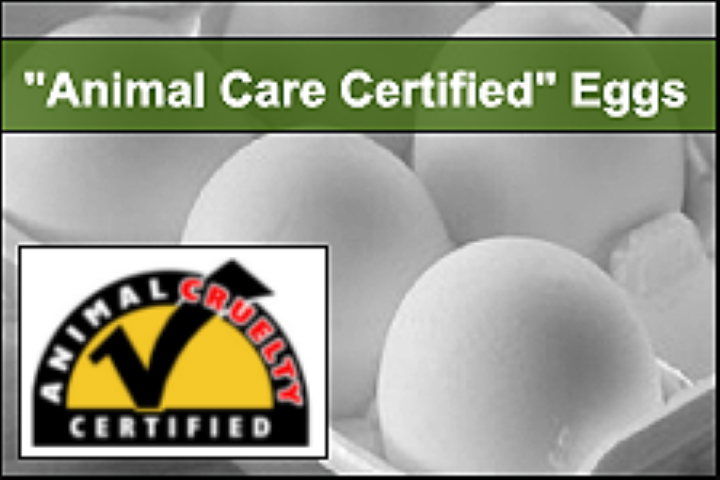Legal Advocacy
Pending Matters: Crescent Duck Farm | Beat the Lag | American Heart Association | Maine Fish Cruelty | Foie Gras Law Enforcement | Martin Farms Prosecution | Cooke Aquaculture False Advertising | High-Speed Pig Slaughter |
Past Actions: Case Farms | Harvey's Market | Alderfer Farm | High-Speed Chicken Slaughter | Iowa VSD | Proposition 12 | “Downed” Pigs | Bravo Criminal Prosecution | Hormel (Amicus) | Bravo Packing Pet Food Contamination | Superior Farms | Tyson Foods Prosecutions (Case 2) | Mason Dixon Dairy Prosecution | Tyson Foods Prosecutions (Case 1) | Central Valley Meat Slaughterhouse Closure | Quanah Cattle Company Prosecutions | Cal-Cruz Hatcheries | Egg Labeling Lawsuit | Foie Gras Lawsuit | Price Fixing Lawsuit | "Humane" Claims Lawsuit | "Animal Care Certified" Eggs Petition
Our Legal Advocacy Program has been working since 2004 to use the legal system as a powerful tool to fight the systemic injustices of factory farming. We focus on creatively using existing criminal laws and civil litigation to target large-scale animal cruelty on factory farms and to protect compassionate consumers from manipulation and unfair business practices by the animal agriculture industry. Farmed animals are given almost no protection under the law, at both the state and federal levels, which makes our task that much more challenging – and important.
We’ve made great strides as we’ve confronted animal agribusiness—both its cruel practices and its unfair business practices.
Our Legal Advocacy Program has continued to grow and thrive, making progress for farmed animals.
Crescent Duck Farm
Status: Records obtained through Freedom of Information Act request
Records obtained by Animal Outlook through a Freedom of Information Act (FOIA) request revealed concerning details about mass duck culling methods performed in January 2025 at Crescent Duck Farm. These methods included the use of carbon dioxide foam and Koechner Euthanizing Devices—handheld tools designed to break birds' necks.
Located on Long Island's north fork, this 117-year-old facility is the region's last remaining duck farm in an area once known for duck farming. Prior to an avian flu outbreak that necessitated mass depopulation, Crescent Duck Farm provided approximately 4% of the nation's duck meat.
FOIA documents revealed that approximately $811,636 in public funds were used for the depopulation effort, including indemnification payments as low as $0.98 per bird for those under 10 weeks of age.
Animal Outlook is advocating for the permanent closure of Crescent Duck Farm and offering assistance through their Farm Transitions program to help convert the operation to crop production.
More news about this case:
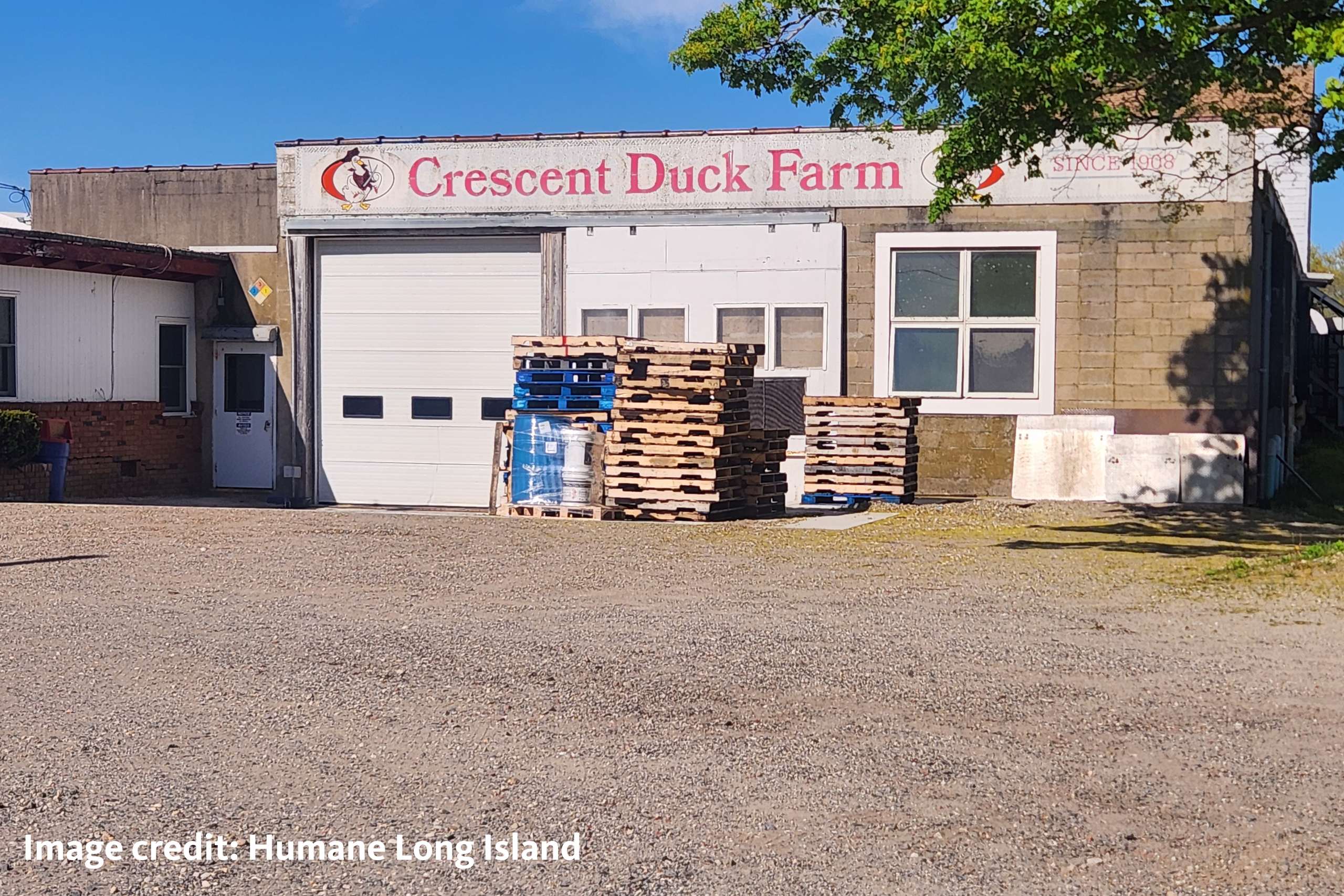
Harvey's Market
Status: On June 26, 2025, Harvey's Market agreed to settle the lawsuit, which included an agreement to permanently cease the sale of foie gras.
On November 26, 2024, Harvey's Market submitted a response to the court asserting that it had discontinued the sale of foie gras after receiving notice of our lawsuit.
On October 15, 2024, Animal Outlook and Legal Impact for Chickens filed a lawsuit in the Superior Court of the District of Columbia against DC-based butcher shop Harvey’s Market for misleading marketing practices. The shop posts signs that say "humanely raised stock," "all-natural," and "free range” to advertise foie gras. AO’s lawsuit alleges that the use of these terms is misleading advertising which violates the District of Columbia Consumer Protection Procedures Act. On July 30, 2024, we sent a cease-and-desist letter to Harvey’s Market demanding that it stop making these false claims about its foie gras. Harvey’s Market refused.
Foie gras, which translates to "fatty liver" in French, is produced by force-feeding ducks or geese until their livers swell up to ten times their normal size. The process is cruel and involves forcibly inserting a tube into the birds' throats to pump food directly into their stomachs, intentionally inducing liver disease. Harvey’s Market advertises its foie gras as being from New York’s Hudson Valley, where foie gras producers Hudson Valley Foie Gras and La Belle Farm are located. Animal Outlook went undercover at Hudson Valley Foie Gras in 2008, and recorded footage showing birds crowding into corners and vocalizing in distress as they tried to evade workers who approached them with feeding tubes. The footage also shows a worker forcing a metal tube down a bird’s throat and pumping in food. Both producers are currently embroiled in litigation against a New York City ordinance that bans the sale of foie gras produced through force-feeding, and have succeeded in stopping the city from implementing the ban. During this litigation, both companies admitted they force-feed their ducks and house them indoors, directly contradicting the "humanely raised stock," "all-natural," and "free range” claims made by Harvey’s Market.
More news about this case:
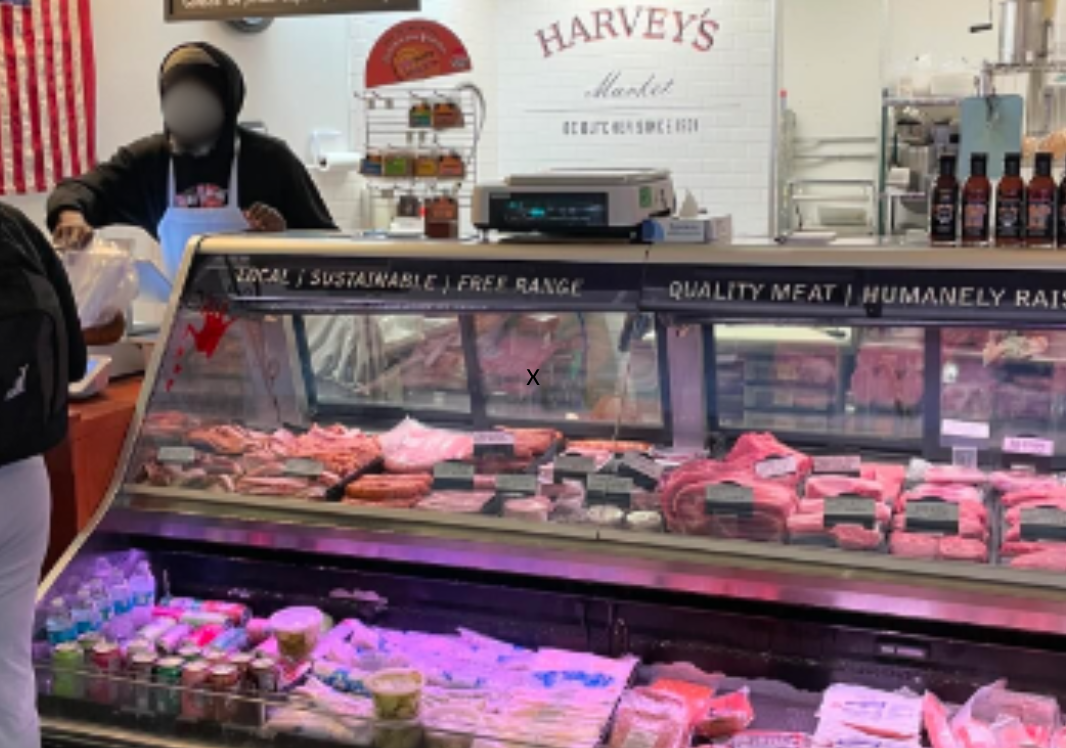
Alderfer Farms
Status: Settled
The court gave final approval to the settlement of the federal class action based on Alderfer's "free-roaming" claims. Alderfer must pay $287,500 and remove all "free-roaming" language from its egg packaging and marketing materials.
On December 1, 2023, Animal Outlook and Richman Law & Policy sued Alderfer Family Farm LLC and Alderfer Poultry Farm, Inc. ("Alderfer") based on allegedly misleading and deceptive marketing claims it made about its shell egg products. Alderfer, the complaint alleged, misled consumers by marketing its eggs as laid by "Free Roaming" hens when many of the egg-laying hens in Alderfer's supply chain had no outdoor access at all. Animal Outlook and Richman Law & Policy were fighting to end this type of unlawful conduct directed at D.C. consumers under the District of Columbia Consumer Protection Procedures Act, and were assisted in drafting the Complaint by students with the Harvard Law School Animal Law & Policy Clinic. A related class action was filed in federal court in New York.
Survey data is clear: people think “free roaming” means the animals can go outside on natural ground. But Animal Outlook intended to prove that Alderfer's eggs were laid by hens who had no meaningful outdoor access and would never touch natural ground cover such as dirt or grass, that these hens were intensely confined in crowded indoor barns for their entire lives, and, given these conditions were unable to express natural chicken behaviors. Even in the rare instance that Alderfer's hens had "outdoor access," the complaint alleged, they were crowded into small, wire-floored "porches" too tiny to accommodate more than a small percentage of the birds at once.
Alderfer eggs are produced in Pennsylvania and are sold throughout the Northeast and the Mid-Atlantic, including in New York, D.C., and Pennsylvania.
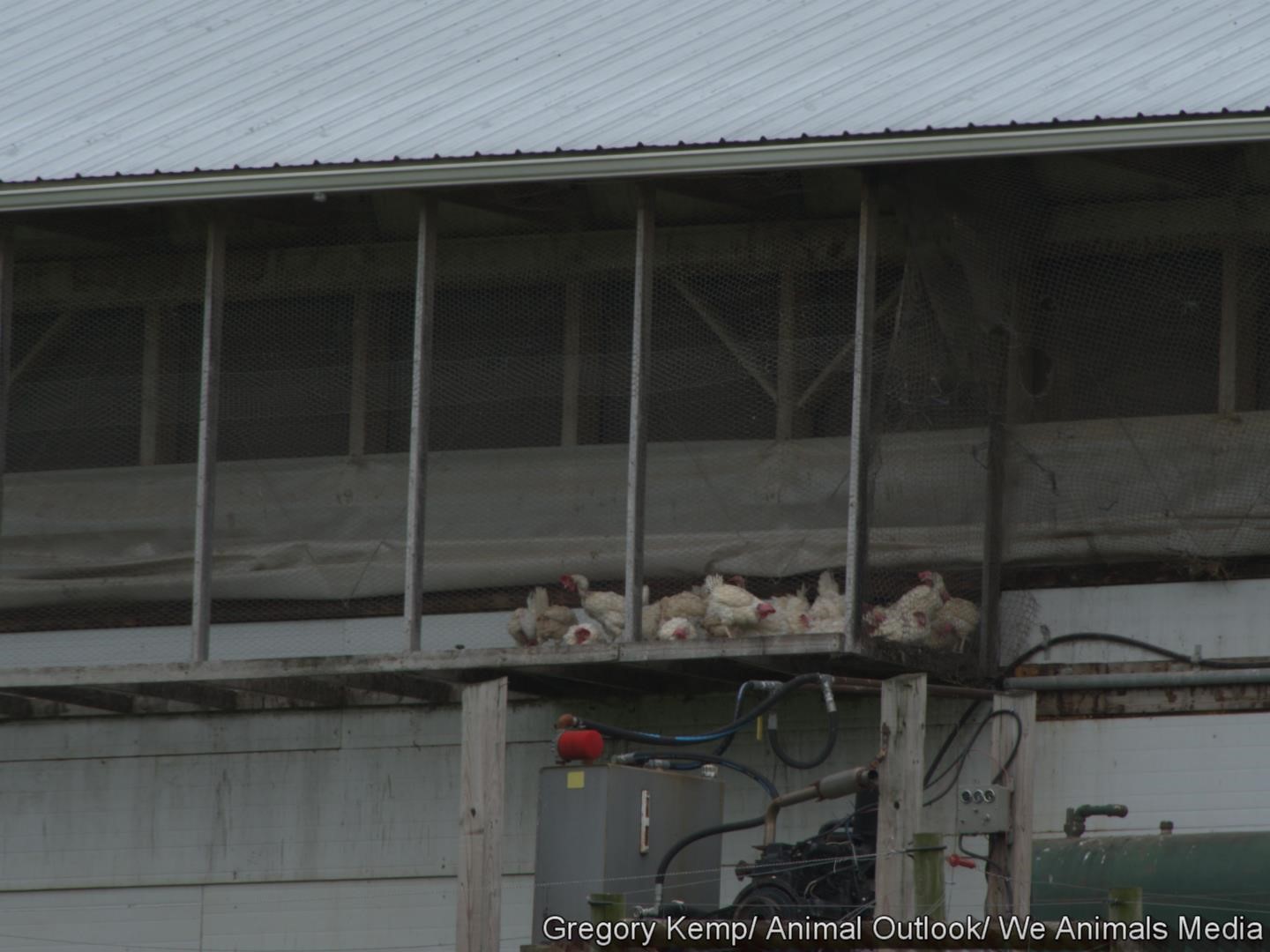
Iowa VSD Records
Status: On August 10, 2023, in response to Animal Outlook filing a Complaint with the Iowa Public Information Board, Iowa's Department of Agriculture turned over previously-redacted information about the inefficacy of VSD+ depopulation attempts. Most shockingly, at one facility—seemingly the facility at which there was a "lack of attention to detail" in performing the depopulation—3,000 birds remained alive after nearly four hours of being subjected to VSD+.
Under Iowa’s Open Records Law, Animal Outlook requested and received documents related to the mass extermination of chickens on farms in Buena Vista County, Iowa, in response to the 2021-2022 bird flu outbreak. Those documents detailed the use of Ventilation Shutdown Plus (VSD+) to kill all of the birds on six farms, after bird flu was detected. Ventilation Shutdown Plus (VSD+) involves shutting off all sources of ventilation in a barn and pumping in heat or steam until the animals die–after suffering immensely–from suffocation or heat stroke. The method has been used throughout the country, including in Iowa, to kill millions of farmed animals en masse in response to the avian influenza outbreak, among other reasons.
The documents Animal Outlook obtained revealed that some birds remained alive after being subjected to between one and a half and nearly five hours of VSD+, and the remaining animals were killed either by being gassed or having their skulls manually or mechanically severed from their spinal columns. Further, the documents expose instances when VSD+ was ineffective due to poor insulation and “lack of attention to detail” when wrapping the barns to cut off air flow. The result is that a mass killing method that is already controversial because it causes immense and prolonged suffering inflicted even more suffering on the animals at these Iowa farms, because the barns were not compatible with the method from the outset and the method was not implemented properly.
Some information on the documents was redacted, including the number of animals that survived being subjected to VSD+ and were therefore killed using other methods. Animal Outlook challenged those redactions, arguing that Iowa’s Department of Agriculture and Land Stewardship has no legitimate reason for concealing this information under the Iowa Open Records Law.
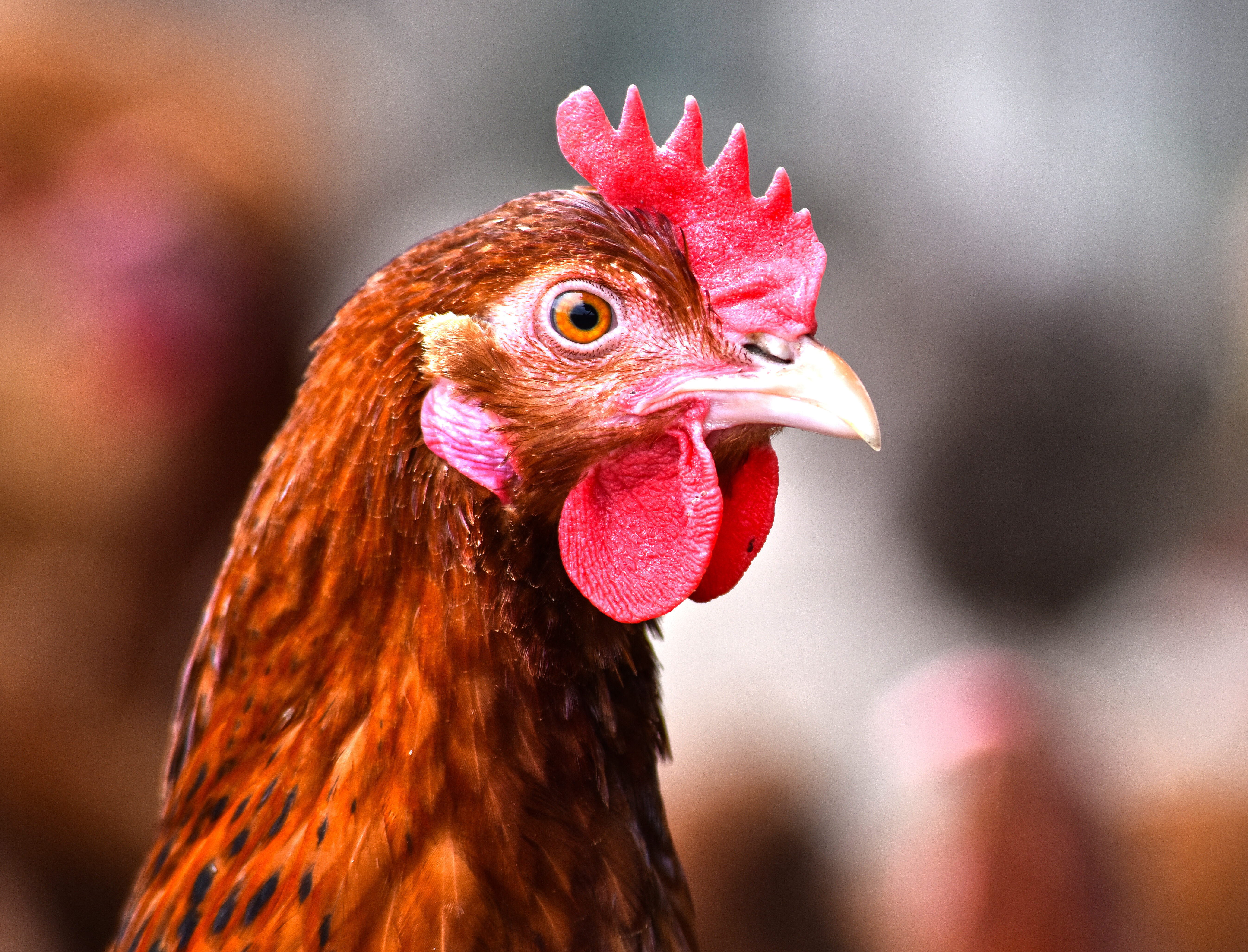
Case Farms
Status: Appeal denied
December 2025 Update: The Supreme Court of North Carolina denied our Petition for Discretionary Review.
May 2025 Update: After the trial court granted Case Farms’ motion to dismiss on December 15, 2023, the Court of Appeals of North Carolina upheld the dismissal on May 21, 2025.
June 2023: Animal Outlook has joined Legal Impact for Chickens (LIC) to sue Case Farms Hatchery, one of the country’s largest producers of chickens for meat. The lawsuit accuses Case Farms of “intentional, affirmative, and reckless acts of neglect and extreme violence” in violation of North Carolina’s animal cruelty law. The case stems from Animal Outlook’s 2021 investigation at Case Farms, which revealed newly-hatched chicks killed, mangled, maimed or trapped in equipment or machinery that was improperly operated or set up; chicks roughly handled, thrown, driven over with machinery, or having their throats crushed; instances of dumping fully conscious chicks into a macerator to be ground alive; and other horrors. Though many of the most painful standard practices in animal agriculture are exempt from animal cruelty laws, these acts by Case Farms – which the lawsuit notes are “inflicted intentionally, knowingly, and/or out of reckless disregard for life, with the full knowledge of Case Farms management” – are not. Animal Outlook and LIC are asking the court to find that Case Farms has engaged in unlawful animal cruelty and to issue an order that prohibits it from further violating the cruelty law.
More news about this case:
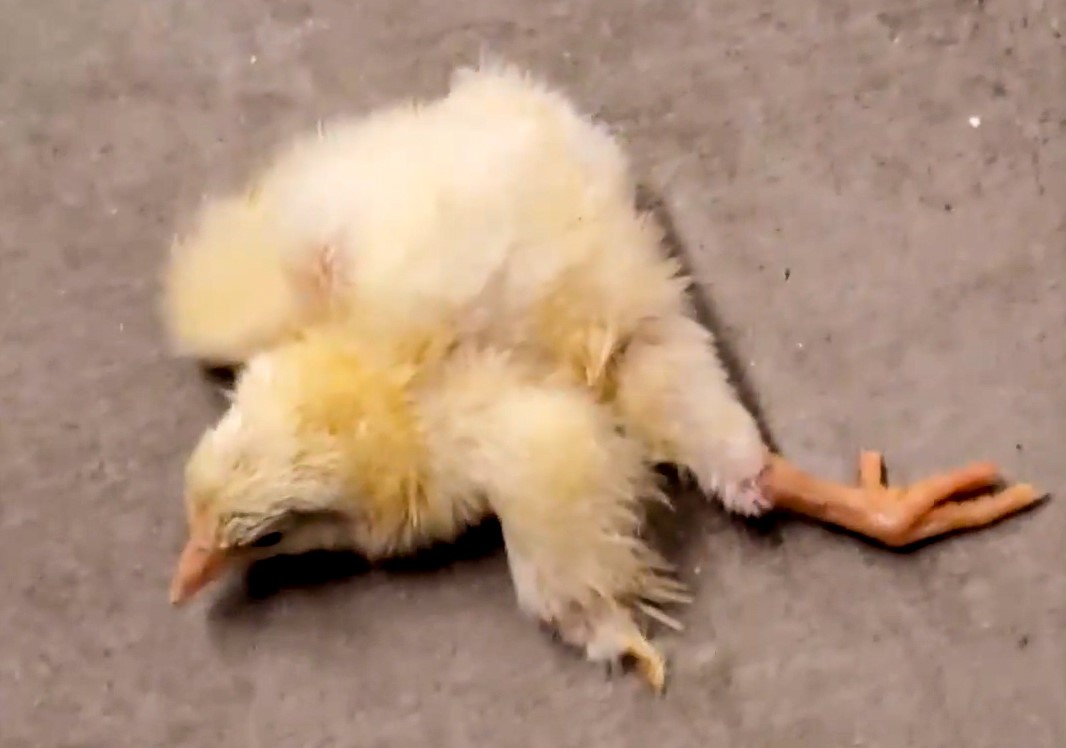
Bravo Criminal Prosecution
Status: The defendant has pleaded guilty and received the maximum fine
Following Animal Outlook’s undercover investigation at Bravo Packing*, which slaughters cows and horses for animal feed and has operated for over 60 years, Animal Outlook filed a private criminal complaint against Bravo’s owner, Joseph Merola. In December 2022, as a result of Animal Outlook’s footage, Merola entered a guilty plea with the court.
The horrific undercover video showed workers dragging from a trailer a fully-conscious cow who was too ill or injured to stand, causing her to drop over the edge of the trailer and slam onto the concrete floor, where she bellowed and writhed in blood and feces. Over the course of the nearly 17-minute video, a Bravo worker botched several attempts to stun the cow, each time driving a steel bolt into her head causing apparent brain trauma but failing to render her unconscious, according to veterinary testimony.
The allegations leading to the recent guilty plea were only the latest in a long line of allegations against Bravo, stretching back well over a decade. For example, horses whom Bravo killed and sold as animal food have been described as “emaciated,” “starving,” and “too weak to stand.” The company also has a history of producing food contaminated with both bacteria and drugs often given to race horses, resulting in fines and recalls.
In addition to submitting the criminal complaint resulting in Merola’s plea, Animal Outlook also submitted a complaint to the FDA and the New Jersey Department of Health in 2020 for violations of federal and state food safety laws. Samples of Bravo pet food showed Salmonella and Listeria monocytogenes contamination, and the FDA announced a recall on the products. Given the egregious, unsanitary conditions at Bravo, the FDA also brought a federal lawsuit against Bravo, culminating in the first permanent injunction of its kind against an animal food manufacturer for violating public safety standards. The injunction required that the company pause making food for pets until it has complied with food safety requirements.
*No affiliation with Bravo Pet Foods
Read the press release about Merola’s guilty plea here.
Learn more about Animal Outlook’s undercover investigation of Bravo Packing here and about Animal Outlook’s food safety complaints about Bravo here.

Beat the Lag
Status: Complaint submitted.
In October 2022, Animal Outlook submitted a complaint with the Federal Trade Commission (FTC) about a dairy industry campaign targeting Gen Z online gamers. The campaign, called “Beat the Lag (BTL),” uses popular video gaming platforms, such as Twitch and YouTube, and well-known gaming influencers to target youth aged 10 to 23 with an advertising campaign exalting the benefits of dairy products. “Beat the Lag”, a play on gaming terminology, is used here to contend that consuming dairy products boosts gamers’ energy. The complaint alleges that the campaign makes health, environmental, and animal welfare claims that range from misleading to absolutely false. It asks the FTC to enforce consumer protection laws by ordering the removal of all false and misleading Beat the Lag claims, prohibiting new false or misleading statements, compelling the campaign’s producers to publish corrections of their previous claims, and working with the USDA to prevent it from approving future advertisements containing false or deceptive claims.
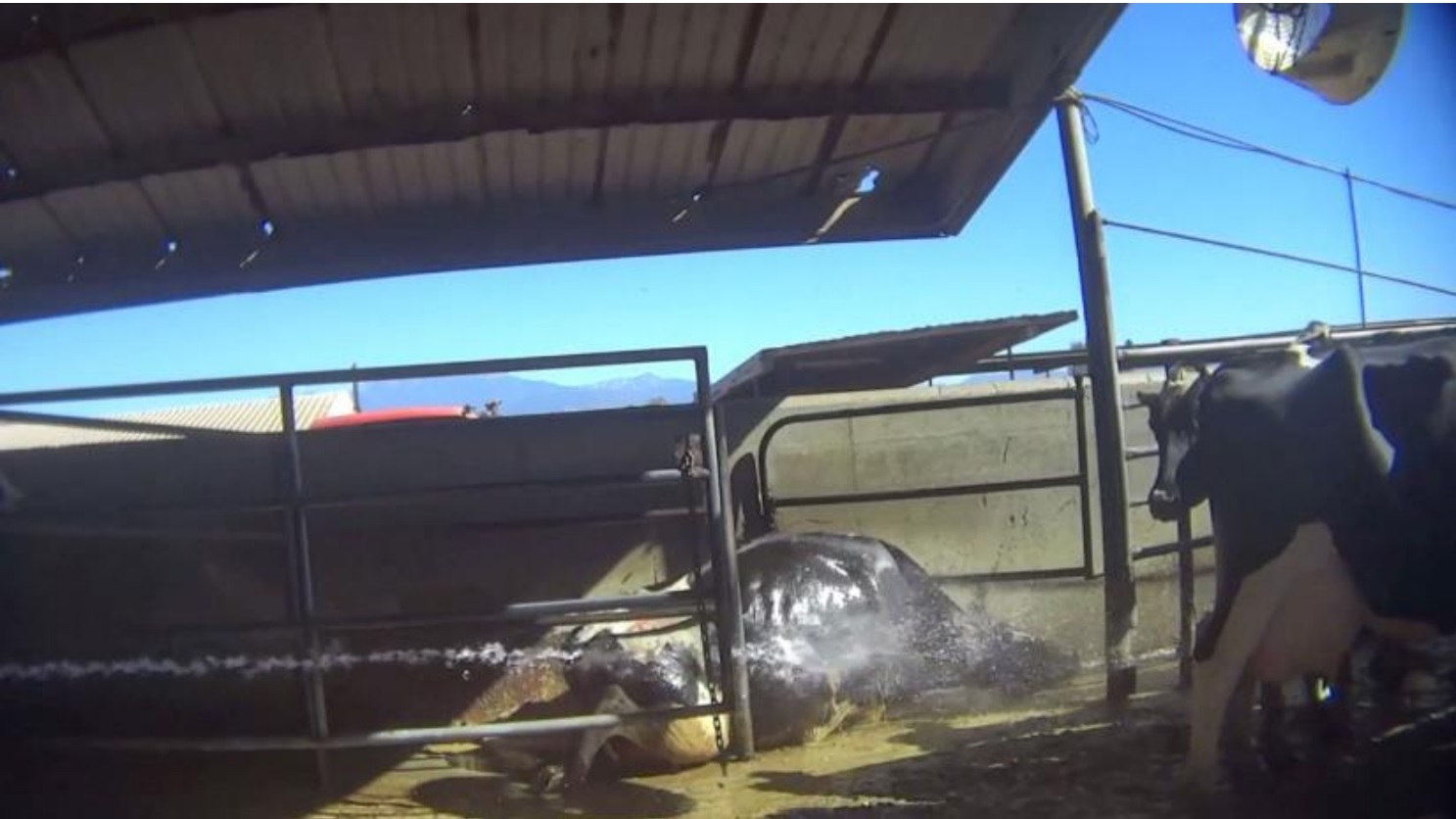
American Heart Association suit over "heart healthy" meat certification
Status: Appeal filed
May 2025 Update: On May 2, 2025, Animal Outlook filed an appeal of the District of Columbia court's dismissal of this lawsuit.
In August 2022, Animal Outlook sued the American Heart Association (AHA) over the organization’s use of its “Heart-Check” certification mark on certain meat products. Our lawsuit alleges that, in exchange for a fee, the AHA allows companies to display the “Heart-Check” mark on meat products and market them as “heart healthy,” which is counter to AHA’s prior statements concerning the negative effects of such “foods.”
“For nearly 100 years the American Heart Association has made it its mission to educate consumers on healthy living,” said former Animal Outlook Executive Director Cheryl Leahy. “That’s why it's so incongruous that they are now selling these pay-to-play heart healthy certifications for the very meat products they have publicly taken a position against.”
More news about this case:
• Western Livestock Journal
• Vegnews
• National Hog Farmer
• Jdsupra
• The Beet
• Vegworld
• Vegnews
• Plant Based News
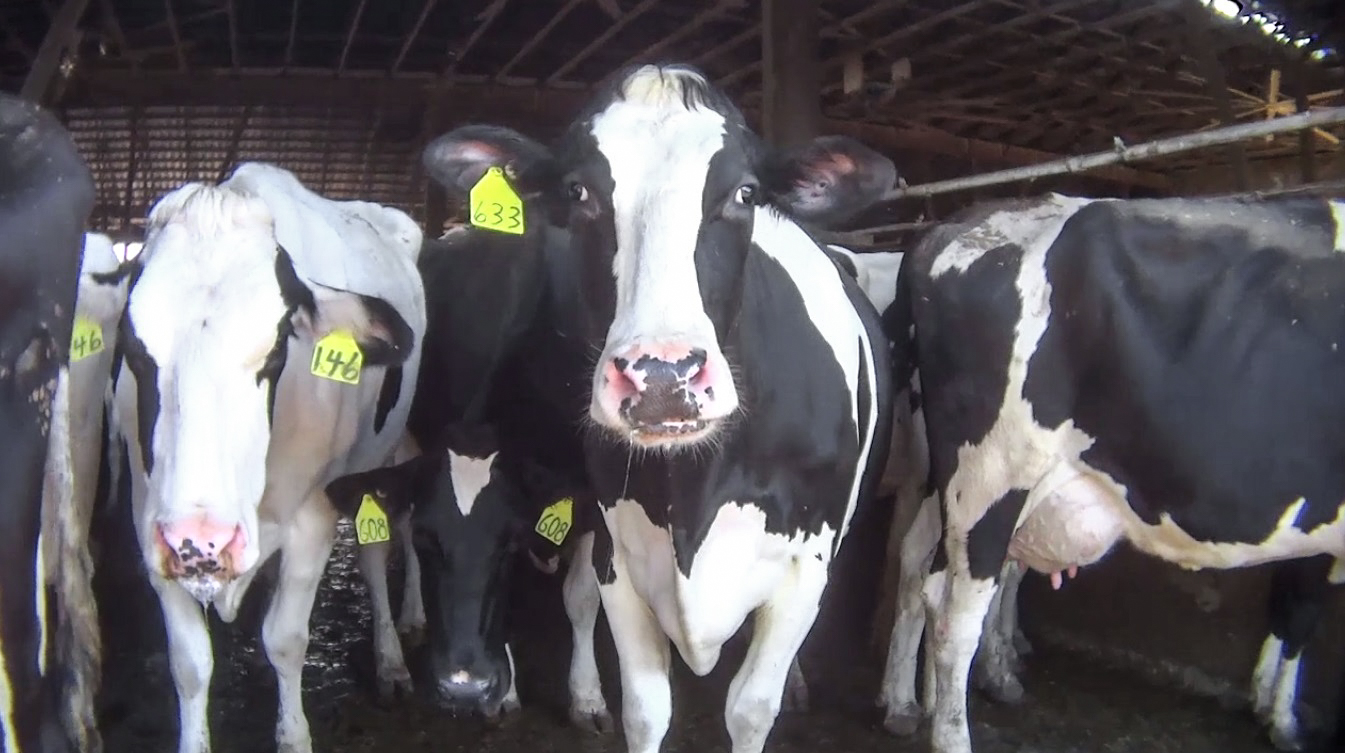
Maine Fish Cruelty Lawsuit
Status: In February 2023, Animal Outlook sued Maine’s Department of Agriculture, Conservation, and Forestry - Animal Welfare Program (DACF-AWP) to force the agency to protect fish in the State’s growing aquaculture industry, as Maine law mandates.
In August 2022, Animal Outlook filed a petition for rulemaking, signed by over 150 Maine registered voters, that required the Maine DACF to begin the process of taking accountability for addressing cruelty in its booming aquaculture industry. The petition stems from Animal Outlook’s 2019 investigation into a Maine salmon hatchery. The investigation documented horrific violence against fish and brought to light that the welfare of fish in aquaculture facilities is not addressed by any agency in the state of Maine.
In September 2022, DACF responded to the petition, indicating that it had no intention of complying with the law. Animal Outlook sent this reply letter, reminding DACF of its legal obligation to apply the state’s animal cruelty laws to Maine’s booming aquaculture industry. Still, the agency refused to fulfill its legal mandate. Therefore, in February 2023, Animal Outlook sued DACF alongside Maine registered voters.
Maine’s legislature has mandated that DACF ensure the humane and proper treatment of “every living sentient creature” in the state—including fish kept for aquaculture. In addition, the agency has a legal obligation to initiate its rulemaking process when petitioned by 150 or more registered voters. But despite the legislative mandate, and despite receiving a petition from over 150 registered voters, the agency has failed to craft regulations—let alone to enforce Maine’s cruelty laws—to protect the millions of aquatic animals as Maine’s booming aquaculture industry. The lawsuit argues that DACF has not only abdicated its legal obligation to protect animals, but it has also directly and unlawfully refused the demands of Maine voters.
Read the press release about the lawsuit here
More news about this case:
• Petition
• Spectrum Local News
• Ellsworth American
• Under Current News
• Mount Desert Islander
• Spectrum Local News
• WVOMFM
• Undercurrent News
• Ellsworth American
• National Fisherman
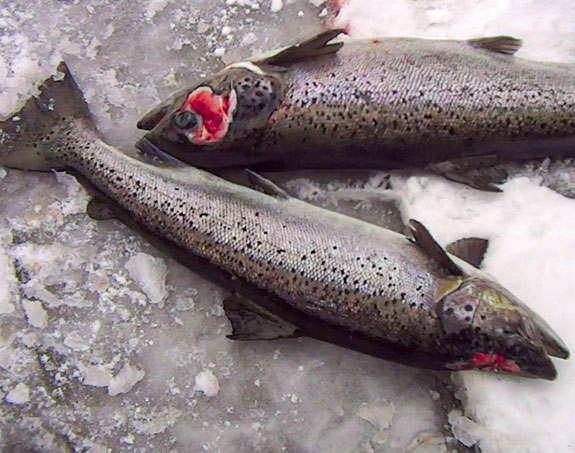
Foie Gras Law Enforcement
Status: Letter submitted to Sullivan County District Attorney and Sheriff
On December 13, 2021, a letter was submitted to Meagan Galligan, District Attorney for Sullivan County, NY, and Michael Schiff, Sheriff for Sullivan County. This letter informs District Attorney Galligan and Sheriff Schiff of ongoing violations of New York’s animal cruelty law by two corporations operating in Sullivan County: Hudson Valley Foie Gras and La Belle Farm. New York’s animal cruelty law states, "A person who overdrives, overloads, tortures, or cruelly beats or unjustifiably injures, maims, mutilates, or kills any animal, whether wild or tame, and whether belonging to himself or to another, (...) is guilty of a class A misdemeanor."
This letter outlines the cruelty inflicted on ducks at these facilities, including brutal force-feeding via a metal tube shoved down their throats, birds being grabbed by their necks and wings, and ducks dying as a result of the force-feeding process. The letter further states, “The forced feeding of ducks and geese to produce foie gras constitutes animal cruelty under New York law. Without question, geese and ducks subjected to cruel force-feeding suffer pain and often death from the process. This pain and death is unnecessary and unreasonable considering the ends sought and prevailing moral standards.”
Animal Outlook asked District Attorney Galligan and Sheriff Schiff to pursue criminal charges against Hudson Valley Foie Gras and La Belle Farm, including the corporate entities as well as their owners and officers. To date, neither District Attorney Galligan nor Sheriff Schiff have responded to this letter.
We need your help - please sign our petition today.
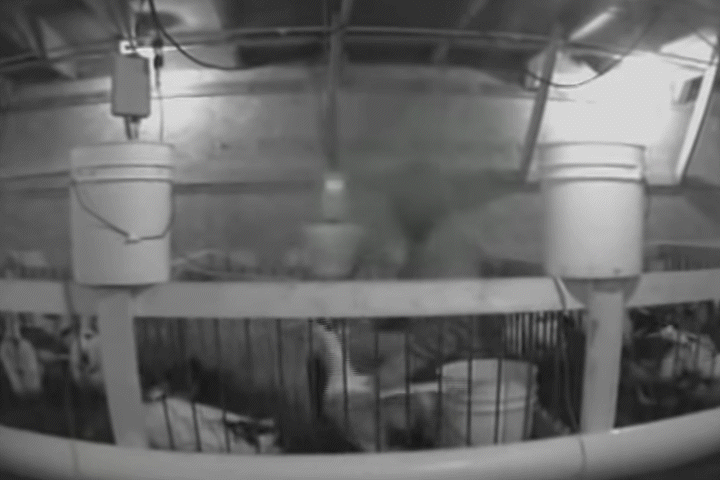
Martin Farms Prosecution
Status: On appeal
January 2025 Update
After losing in the Superior Court, the District Attorney’s office appealed to the Supreme Court of Pennsylvania. That court announced a change in the law in a different case, altering the standard of review for denials of private criminal complaints, and remanded this lawsuit back to the Court of Common Pleas to be considered anew under the new standard. Facing the same judge who dismissed the petition in 2021, Animal Outlook filed a successful motion for recusal, and presented the case before a new judge. On January 13, 2025, that judge dismissed the petition again.
Animal Outlook is filing an appeal in the Superior Court of Pennsylvania, which wrote a thoughtful and thorough opinion in 2022 that would have required the District Attorney to prosecute the animal cruelty revealed in Animal Outlook’s investigation of Martin Farms had it not been appealed and remanded.
Animal Outlook will be represented on appeal by Animal Partisan, with assistance from local counsel Mays and Rotenberg.
February 2022 Update
Martin Farms Animal Cruelty Victory: Appellate Court Orders Prosecution
On February 8, 2022, the Superior Court of Pennsylvania, one of Pennsylvania’s two appellate courts, issued an opinion largely siding with Animal Outlook in its Martin Farms appeal. The appeal stemmed from a lower court’s February 2021 dismissal of Animal Outlook’s private criminal complaint alleging animal cruelty, aggravated cruelty, and neglect against Martin Farms and more than a dozen employees, after the District Attorney’s office refused to prosecute. The complaint was based on Animal Outlook’s 2018 undercover investigation, which led Animal Outlook to present to the Pennsylvania State Police and the District Attorney’s office a list of 327 incidents it determined to be violations of Pennsylvania’s criminal protection laws, many of which were captured on video.
In a 28-page opinion, the Superior Court recounted the lengthy factual history of the case, analyzed our arguments alleging the trial court had committed legal error, and ultimately concluded that Animal Outlook had demonstrated sufficient evidence of neglect and cruelty as it relates to Martin Farms’ handling of downed cows, excessive shocking and tail pulling, and disbudding of calves. The Court further held that Martin Farms’ conduct associated with these practices was not exempted from prosecution under Pennsylvania’s “normal agricultural operation” exemption.
The Superior Court reversed the lower court’s dismissal of Animal Outlook’s private criminal complaint as it relates to these incidents. The Superior Court then directed the lower court to order the prosecutor to accept Animal Outlook’s complaint and initiate prosecution for these incidents documented during our investigation.
We have never had any doubt that the cruelty and neglect revealed by our investigation is squarely within the scope of the conduct prohibited by Pennsylvania law and have long believed that if we were given access to fair and thorough process under the law, this cruelty would be recognized. We’re grateful that the Superior Court did just that here, thoughtfully considering the weight of evidence from our undercover investigation that showed beyond any shadow of a doubt that Martin Farms’ conduct violated Pennsylvania’s animal protection laws. The Court’s ruling that even so-called standard practices such as disbudding vulnerable calves with hot irons and without pain medication are not immune from prosecution sends a clear message that animals used in agriculture are worthy of protection.
Animal Outlook was assisted in the appeal by local counsel Mays and Rotenberg.
August 2, 2021 Update:
Following our investigation at Martin Farms, Animal Outlook urged the Franklin County District Attorney to pursue criminal charges against the farm and employees involved. Despite Animal Outlook’s full cooperation, the District Attorney announced more than a year after the investigation that he would not pursue criminal charges. Animal Outlook’s legal team used a unique procedure in Pennsylvania law to file a private criminal complaint, which the District Attorney also declined. In September 2020, Animal Outlook petitioned the Court of Common Pleas to reverse the District Attorney’s decision. The court declined our petition. Unwilling to abandon the pursuit of justice for the suffering cows at Martin Farms, Animal Outlook has appealed to the Superior Court of Pennsylvania and is asking that court to overturn the Court of Common Pleas’ decision and require the District Attorney to institute criminal charges against Martin Farms and its employees. We have filed two briefs and are currently awaiting a schedule for oral argument before the Superior Court.
More news about this case:
• Penn Live
• ABC7
• FOX43
• Plant Based News
• Public Opinion

Cooke Aquaculture False Advertising
Key Date: Lawsuit filed on June 28, 2020
Status: Case dismissed for procedural reasons
In April 2022, the judge in our lawsuit wrote that the cruelty we described was "grotesque and reprehensible," though she dismissed the case for procedural reasons. Now Animal Outlook has submitted a petition, signed by over 150 registered Maine voters, that requires the Maine Department of Agriculture, Conservation, and Forestry (DACF) to begin the process of applying Maine anti-cruelty laws to the state’s booming aquaculture industry. Read more about the petition, including the latest updates, here
On June 28, 2020, Animal Outlook, represented by the Richman Law Group, filed a lawsuit against Cooke Aquaculture for misleading and deceptive advertising in violation of the District of Columbia Consumer Protection and Procedures Act. The lawsuit alleges that Cooke’s advertisements that its practices are “sustainable” and “ecologically sound,” and that its salmon are “naturally raised” under “optimal” animal welfare standards constitute false advertising.
Cooke filed four separate motions trying to kill the case, but the court ruled against it on every one. On June 24, 2021, the Superior Court of the District of Columbia denied all four motions, and the case is now proceeding toward trial.
The lawsuit follows the 2019 release of Animal Outlook’s investigation into Cooke Aquaculture’s salmon hatchery in Bingham, Maine, the first-ever undercover investigation of salmon aquaculture in the United States. Our investigation revealed conditions far from “sustainable” or “natural,” including workers slamming, stomping, and slamming fish into concrete; improper veterinary practices; and filthy conditions, including fish with spinal deformities and fungal growths.
Our investigation is far from the first time Cooke has found itself in legal trouble for its irresponsible aquaculture practices which directly contradict its advertising claims. Fines and settlements totaling millions of dollars for violations of laws across multiple states, including the catastrophic release of 250,000 non-native salmon in Washington state, numerous permit violations in Maine and the illegal discharge of pollutants in multiple locations, have plagued Cooke over the past few years.
Cooke’s industrial aquaculture practices are a far cry from the wholesome, responsible image of “sustainable farming” that it actively portrays. Our lawsuit aims to stop Cooke from continuing to mislead and deceive consumers into purchasing its products.
More news about this case:

High-Speed Chicken Slaughter Lawsuit
Status: Motion to dismiss granted
Key Date: Motion to dismiss granted February 22, 2024
On behalf of the billions of chickens slaughtered in the United States every year, Animal Outlook, alongside the Humane Society of the United States, the Government Accountability Project (GAP), Marin Humane Society, and Mercy for Animals, sued the USDA over its reckless high-speed slaughter program.
More news about this case:
• Animal Outlook
• Feedstuffs
• VegNews
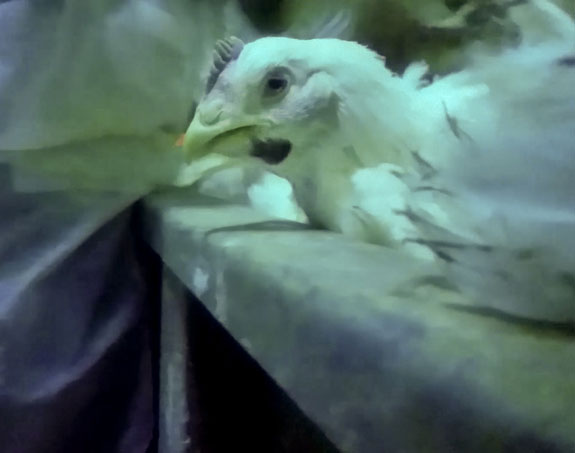
“Downed” Pigs Lawsuit
Status: Summary judgement granted for USDA
Key Date: Summary judgement granted on March 28, 2023
As part of a coalition of animal protection groups, Animal Outlook filed a lawsuit against U.S. Secretary of Agriculture Sonny Perdue for failing to protect pigs who are too sick or injured to walk to slaughterhouses, posing serious risks to animals and food safety.
The lawsuit, filed in federal court in Rochester, New York, challenges the agency’s failure to follow Congress’s longstanding mandates regarding these “downed” or “non-ambulatory” animals, as well as its recent denial of a petition to ban their slaughter.
Every year, well over half a million pigs arrive at U.S. slaughterhouses too sick or injured to stand or walk. These animals are often kept in holding pens where they are unable to rise from feces-ridden floors before being slaughtered. Downed pigs are at a heightened risk of carrying a host of human-transmissible pathogens, including Listeria, Campylobacter, Salmonella, swine flu, and Yersinia. They are also at a heightened risk of inhumane handling, including being excessively electro-shocked, prodded, kicked, shoved and dragged by workers attempting to force them to move.
In 2002, Congress amended the Humane Methods of Slaughter Act—which governs not just the slaughter of animals but also their handling at the slaughterhouse—to direct the Secretary of Agriculture to investigate and report to Congress on a host of issues related to non-ambulatory livestock, including humane handling, and, based on this report, to promulgate any regulations needed to protect these animals. Despite the passage of nearly two decades, there is no indication that the USDA has ever reported on non-ambulatory pigs, even though pigs comprise approximately 75% of livestock slaughter in the U.S.
In 2015, an Animal Outlook investigation at a Hormel supplier in Minnesota revealed egregious acts of cruelty committed against “downed” pigs who were unable to walk. Our investigator witnessed these pigs being brutally dragged to the slaughter line with metal hooks in their mouths, beaten with paddles, and repeatedly shocked with electric prods to force them to slaughter.
“This litigation represents an important step in the recognition of basic humanity toward the sickest and most injured pigs in the pork industry. No compassionate society should deny these suffering animals protection against the last torturous dragging or abuse in their final moments, merely to get them into the slaughter line so they can be sold,” said Will Lowrey, counsel for Animal Outlook.
On June 28, 2021, the District Court for the Western District of New York denied the USDA’s attempts to have the case dismissed. The case now proceeds toward trial.
More news about this case:
• Animal Outlook
• Vegan News Now
• VegNews
• Washington Post
• Yahoo News
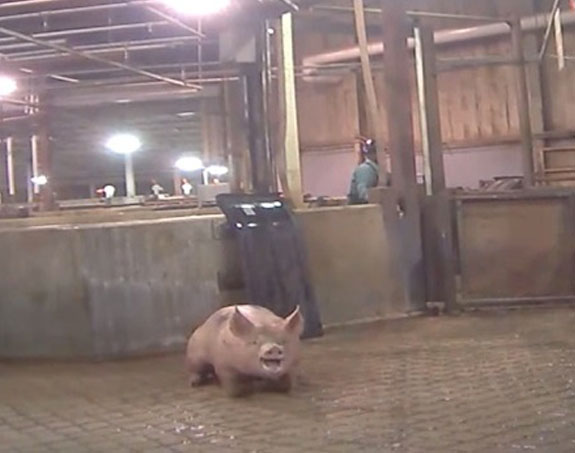
High-Speed Pig Slaughter Lawsuit
Status: Currently in litigation
Key Date: Animal Outlook filed the appellants’ opening brief in the U.S. Court of Appeals for the Second Circuit on January 6, 2025
On December 18, 2019, Animal Outlook joined six other animal protection organizations in filing a lawsuit against the United States Department of Agriculture (USDA) challenging the agency’s decision to reduce oversight and eliminate line speed caps at pig slaughterhouses, exposing millions of pigs to greater suffering and flouting federal humane slaughter, meat inspection, and environmental protection laws.
After another court forced the USDA to walk back the elimination of line speed caps, the line speed claim in this lawsuit was dropped, and the case proceeded only on the claim that the USDA’s decision to reduce oversight in pig slaughterhouses, including by removing and relocating federal inspectors in slaughterhouses. Federal law requires agency inspectors to ensure that animals at slaughterhouses are not subjected to cruel handling, including dragging and beating, and to ensure that sick animals don’t enter the food supply.
The USDA has long asserted that its inspections are the most effective way to protect against disease epidemics that could devastate animal populations and threaten public health. Yet, at the same time the agency is preparing for the possibility of a disastrous outbreak of African swine fever—which is expected to decimate up to a quarter of the world’s pig population—it is replacing its front-line inspectors with untrained slaughterhouse staff.
In 2015, Animal Outlook investigated a pig slaughterhouse in Minnesota operating under a waiver allowing increased line speeds. Our investigator witnessed egregious acts of cruelty committed by workers trying to keep pace with the rapid slaughter line, including sick and injured pigs unable to walk being dragged and electrically prodded, numerous instances of improper stunning potentially leading to animals entering the scalding tank while still alive, animals being beaten, and pigs covered in feces or pus-filled abscesses being slaughtered and processed for human consumption. You can listen to our investigator discuss this experience here and sign our petition against high-speed slaughter.
On June 28, 2021, the District Court for the Western District of New York denied the USDA’s attempts to have the case dismissed. The case now proceeds toward trial.
More news about this case:
• Animal Outlook (1)
• Animal Outlook (2)
• Associated Press
• Blabbermouth
• The Guardian
• Medium
• Sentient Media (1)
• Sentient Media (2)
• VegNews
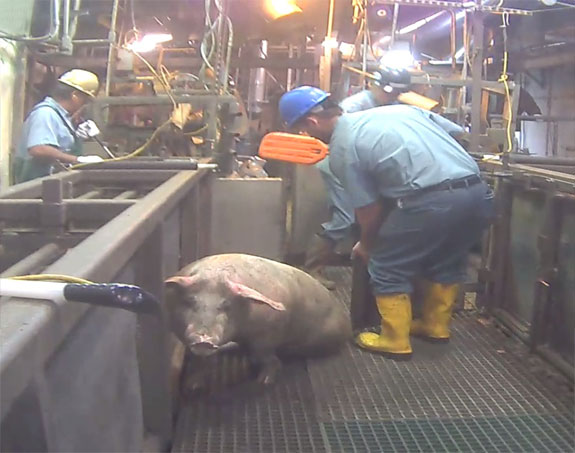
California Proposition 12 Lawsuit
Status: On May 11, 2023, the Supreme Court affirmed the 9th Circuit’s dismissal of the case, thereby ending the case with Proposition 12 intact. The Court’s opinion vindicates the right of all of us to stand up and refuse to be complicit in cruel industries like the pork industry. The court said “[i]n a functioning democracy, those sorts of policy choices…belong to the people and their elected representatives.” It’s not huge corporations who get to decide it’s morally acceptable to commit cruelty for profit - the power to determine what’s morally allowable in society belongs to us. This is a monumental day for the principle that we all have the power – with our wallets and our political action as citizens – to dismantle cruelty, and ultimately the animal ag industries that rely upon it to exist.
Key Dates: On October 11, 2022, the U.S. Supreme Court hear the appeal of the decision by the 9th Circuit Court Appeals to dismiss the case, brought by the National Pork Producers Council. Animal Outlook was part of a coalition of animal protection organization that intervened in the case to help California defend Proposition 12. On May 11, 2023, the Supreme Court affirmed the 9th Circuit’s dismissal of the case, thereby ending the case with Proposition 12 intact.
More news about this case:
• Vegnews
• Feedstuffs
• Animal Outlook
• California Globe
• Food Dive
• New Times
• Reuters
• VegNews
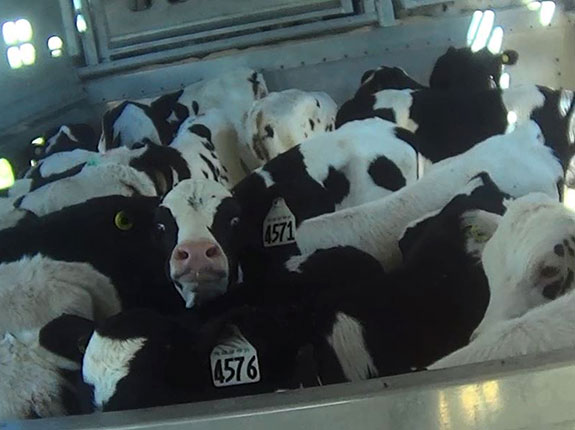
Hormel Lawsuit (Amicus)
Status: Victory: District of Columbia Court of Appeals reversed the Superior Court judgment granting summary judgment to Hormel Foods.
Key Date: September 2, 2021
Animal Outlook, along with two other animal protection organizations, filed an amicus curiae brief (“friend of the court” brief) in the District of Columbia Court of Appeals in support of Animal Legal Defense Fund’s (ALDF) false advertising lawsuit against Hormel.
More news about this case:
• Animal Outlook
• Bloomberg
• Eater
• Food Dive
• The New Republic
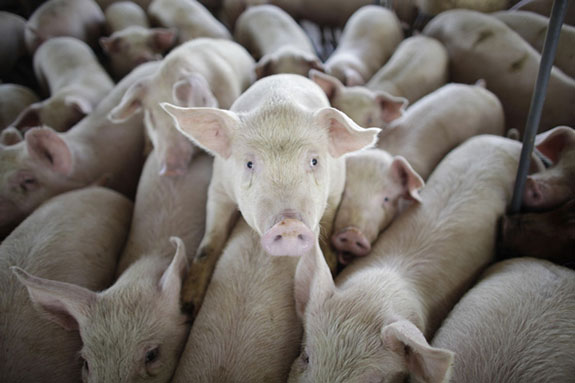
Superior Farms Lawsuit
Status: Victory - Case settled with consent decree ordering Superior Farms to pay a substantial fine and implement training and procedures for humane slaughter
Key Date: Consent decree signed on May 15, 2019
Following our 2017 undercover investigation at Superior Farms, the first ever look inside a United States lamb slaughterhouse, Animal Outlook joined Public Justice in filing a lawsuit under the False Claims Act.
More news about this case:
• Animal Outlook
• New York Times
• Sentiment Media
• VegNews
• World Animal News
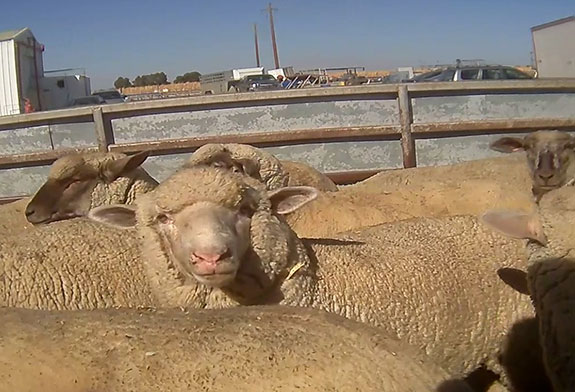
Tyson Foods Prosecutions (Case 1)
Status: Victory - 9 employees convicted on 22 counts of animal cruelty
Key Date: Convictions between 2017-2019
Following our groundbreaking 2016 investigation into Tyson Foods’ broiler breeder factory farms in Virginia, Animal Outlook’s vigorous pursuit of prosecution led to the conviction of nine former employees on 22 counts of animal cruelty, the first-ever convictions for cruelty to chickens raised for meat.
More news about this case:
• Animal Outlook (1)
• Animal Outlook (2)
• Business Insider
• Daily Mail
• Food Dive
• Heavy
• News Leader
• Richmond
• USA Today
• Washington Post
• WBOC
• WMDT
• WRIC
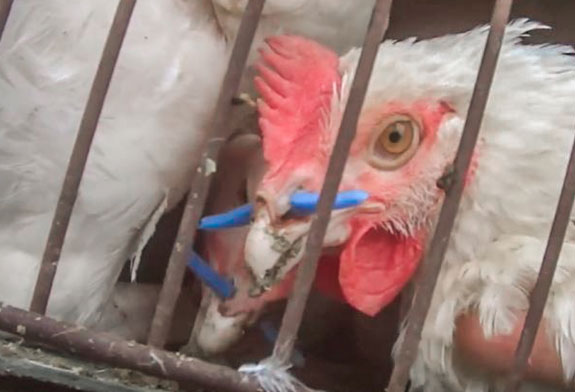
Egg Labeling Lawsuit
Status: Appeal denied
Key Date: Ninth Circuit opinion issued February 27, 2017
On March 28, 2013, Animal Outlook (then Compassion Over Killing) and the Animal Legal Defense Fund (ALDF) co-filed a lawsuit against the Food and Drug Administration (FDA), two agencies within the United States Department of Agriculture (USDA) and the Federal Trade Commission (FTC) for failing to regulate animal welfare labeling on egg cartons. Several Bay Area egg consumers who had been deceived by misleading animal welfare claims on egg cartons were co-plaintiffs in the lawsuit. Pro bono counsel was provided by Bingham McCutchen, LLP..
More news about this case:
• Animal Outlook
• Agri-Pulse
• Food Safety News
• KTVU
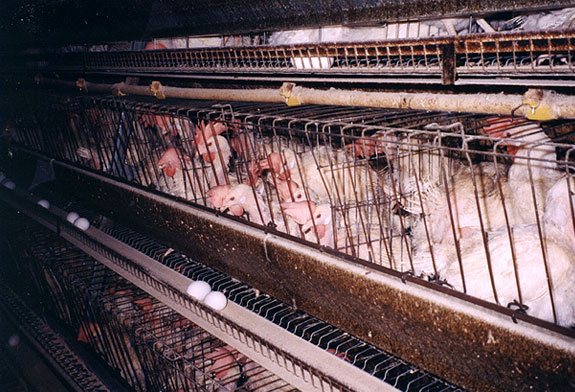
Foie Gras Lawsuit
Status: Summary judgment granted for USDA
Key Date: Summary judgment granted on December 14, 2016
Animal Outlook (formerly Compassion Over Killing), Animal Legal Defense Fund, Farm Sanctuary, and Animal Protection & Rescue League, and several concerned individuals joined forces to file a lawsuit against the US Department of Agriculture (USDA) for allowing the sale of a diseased poultry product commonly known as foie gras.
More news about this case:
• ADLF
• Animal Law
• Courthouse News
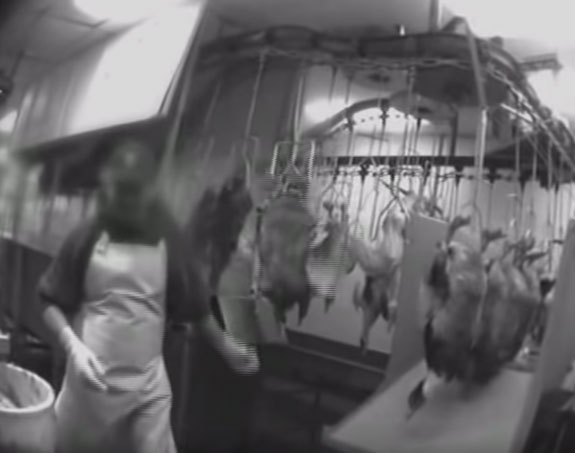
Price Fixing Lawsuit
Status: Victory – Dairy industry ordered to pay dairy consumers $52 million in class action settlement (Animal Outlook conducted initial research and case theory development)
Key Date: Settlement reached on September 7, 2016
The dairy industry has consistently shown its lack of regard for animal welfare and the environment. Now it’s milking its own consumers by illegally jacking up prices.
On Monday, Sept. 26, 2011 several dairy consumers, including members of Animal Outlook (then Compassion Over Killing), filed a class action lawsuit on behalf of consumers alleging that various dairy companies and trade groups combined to form Cooperatives Working Together (CWT) in order to engage in a price fixing scheme that inflated the price of milk.
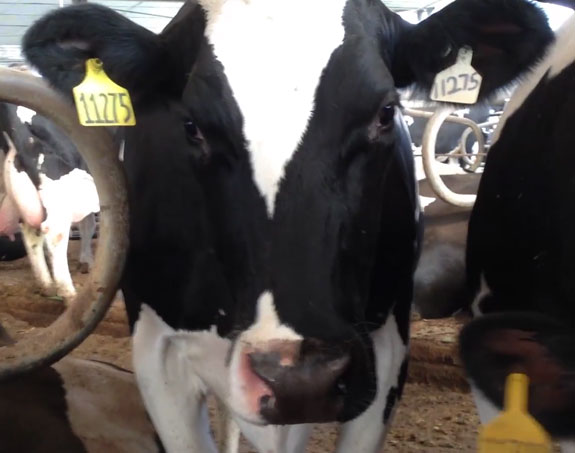
"Humane" Claims Lawsuit
Status: Victory – Kroger agreed to remove “humane” label from Simple Truth chicken products
Key Date: Settlement reached in October 2014
On February 11, 2014, a consumer of Simple Truth chicken—Kroger, Co.'s store brand—filed a class-action lawsuit in the Superior Court of California in the County of Los Angeles alleging that the grocery giant is falsely and deceptively touting its Simple Truth chicken as having been sourced from chickens raised "in a humane environment," despite the fact that the birds are treated no differently than other mass-produced chickens confined on factory farms and killed in industrial slaughter plants.
More news about this case:
• Biz Journals
• Cincinnati.com
• Consumerist
• Food and Safety News
• Oregon Live
• Reuters (1)
• Reuters (2)
• Supermarket News
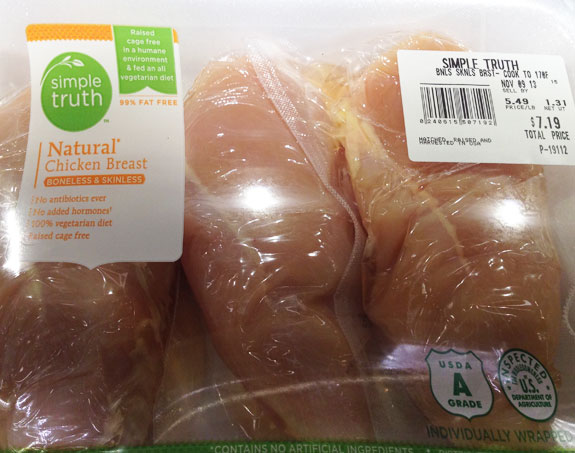
Tyson Foods Prosecution (Case 2)
Status: Facility owner pled “facts sufficient” to cruelty to animals
For several weeks, an Animal Outlook investigator worked inside Atlantic Farm, a Temperanceville, Virginia facility with more than 225,000 birds crammed inside filthy warehouses. The investigation marked the second time in little more than a year that Animal Outlook has exposed horrific cruelty to birds within the poultry giant’s supply chain.
The facility owned pled “facts sufficient” to charges of cruelty to animals and agreed to a plea bargain in which he agreed to not work with animals for a year and to take a course on compassion to animals.
More news about this case:
• Animal Outlook
• Washington Post
• Business Insider
• Delmarva Now
• KNWA
• Cape Charles Mirror
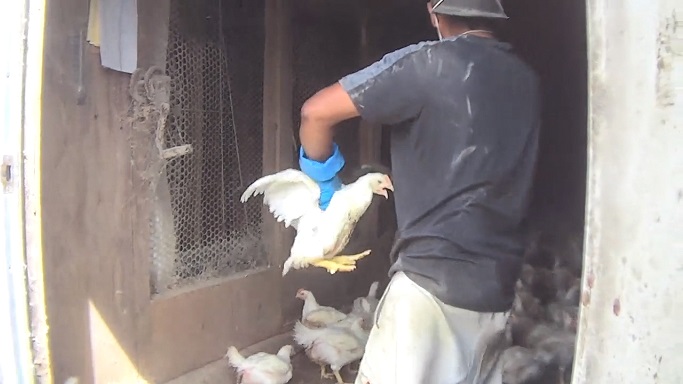
Mason Dixon Dairy Prosecution
Status: Former employee convicted of animal cruelty
In 2017, an Animal Outlook investigation revealed violent abuse of gentle mother cows at Mason Dixon Farms, a massive dairy factory farm in Pennsylvania with more than 2,500 animals. The investigation documented egregious cruelty to animals including workers kicking cows in the face, punching them in their sensitive udders, excessively shocking them with an electric prod, jabbing them with pens or elbows, and twisting or bending their tails. After we submitted evidence to local authorities, one former Mason Dixon employee pled guilty to three counts of animal cruelty.
More news about this case:
• Animal Outlook
• WITF
• Philly Voice
• VegNews
• All Creatures
• World Animal News
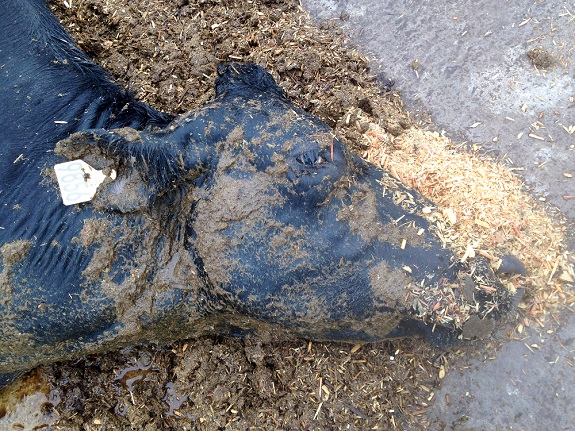
Bravo Packing Pet Food Contamination
Status: Pending FDA Review
Key Date: Complaint submitted to U.S. Food and Drug Administration and New Jersey Department of Health on December 10, 2020
Animal Outlook submitted a detailed complaint against Bravo Packing, Inc. (no affiliation with Bravo Pet Foods) to the FDA and the New Jersey Department of Health on December 10, 2020, after we tested a sample of Bravo’s Performance Dog frozen raw pet food and discovered that it contained Salmonella. Our complaint accused Bravo of violating the federal Food, Drug, and Cosmetic Act, as well as analogous New Jersey food safety laws, by selling adulterated pet food.
The FDA then inspected Bravo Packing’s facility in New Jersey, tested samples of its products, and found Salmonella and Listeria monocytogenes contamination. The FDA announced a recall of the company’s Performance Dog and Ground Beef frozen raw pet foods on March 3, 2021.
If your pet has become sick after eating these foods, please contact us at info@animaloutlook.org.
Bravo Packing (or associated businesses) slaughters horses, provides dead animal removal services, and makes raw frozen foods for pets and exotic animals containing beef, horse meat, and other cow and horse body parts. It has a history of animal cruelty allegations stretching back well over a decade. For example, horses whom Bravo killed and sold as animal food have been described as “emaciated,” “starving,” and “too weak to stand.”
The company also has a history of producing contaminated food. Its pet food has been recalled before due to Salmonella contamination. The FDA has found in Bravo’s food for exotic animals both Pentobarbital, a drug which is commonly used to euthanize horses, and Phenytoin, which is commonly administered to racing horses.
In addition to food safety issues like those discovered at Bravo Packing, many consumers are unaware that farmed animals suffer immeasurably within the loosely regulated pet food industry. Many of these animals—often sick, injured, or unable to walk—were deemed unfit for human consumption and their bodies, including “blood, hair, hoof, horn, hide trimmings, manure, and stomach and rumen contents” make their way into pet food. Bravo itself produces food for animals made from animals who died of causes other than slaughter, or who were dying or disabled at slaughter, according to a 2018 consumer complaint to the FDA.
More news about this case:

Quanah Cattle Company Prosecutions
Status: Three former employees convicted of animal cruelty
In 2013, an Animal Outlook undercover investigator worked inside Quanah Cattle Co. (QCC), an animal agribusiness company in Kersey, Colorado that purchases newborn calves from surrounding dairy factories and temporarily confines them before shipping them out to be raised for their meat. Just days old, many of these calves – some of whom still have their umbilical cords hanging from their bodies – are too feeble or frightened to walk steadily. As our footage shows, in the process of being moved on and off trucks, these fragile animals are violently dragged by their legs, pulled by their ears, lifted by their tails, kicked, thrown, slammed, and flipped.
Based on Animal Outlook’s investigation, three former Quanah Cattle Company employees were convicted of animal cruelty. Two former employees were sentenced to “two years supervised probation and ordered to pay a fine of $500. As conditions of probation, each man must complete 300 hours of public service and a Making Better Choices class.” A third employee was sentenced to “two years supervised probation and ordered to pay a $500 fine. As conditions of probation, he must complete 300 hours of public service and a Making Better Choices class.”
More news about this case:
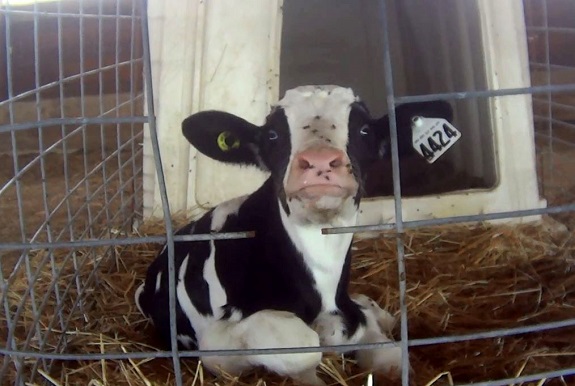
Cal-Cruz Hatcheries Lawsuit
Status: Victory
Key Date: Settlement reached in June 2012
Animal Outlook documented shocking abuses of newly-hatched chicks and ducklings at Cal-Cruz Hatcheries in a 2009 undercover investigation. We immediately turned the video over to the law enforcement authorities at the Santa Cruz County Animal Services Authority and the District Attorney’s Office. In response, humane law enforcement conducted a follow-up investigation which corroborated our findings—and resulted in the rescue of 88 ducklings.
But officials failed to bring charges, so Animal Outlook (then Compassion Over Killing), represented by the Animal Legal Defense Fund, took Cal-Cruz Hatcheries to court.
More news about this case:
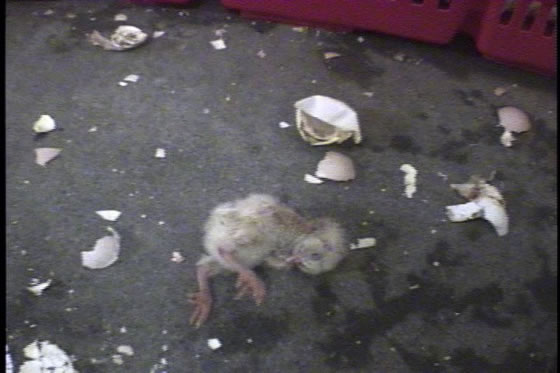
Central Valley Meat Slaughterhouse Closure
Status: Slaughterhouse temporarily shut down by USDA
An undercover video, filmed by an Animal Outlook investigator in 2012, exposed rampant animal abuse and suffering inside Central Valley Meat Co. (CVM), a slaughterhouse in Hanford, California. CVM was a major supplier to the USDA’s National School Lunch Program and other federal food initiatives. Most of the animals slaughtered by CVM at the time of the investigation were “spent” dairy cows who are no longer economically viable as milk-producers to the dairy industry. The investigation revealed downed cows, unable to walk to the kill floor, shot in the head two, three, even four times, and workers often walking away while the animal continues to struggle and kick. Some downed cows who were still alive after being shot in the head were then suffocated by workers who stood on their mouths and nostrils preventing the cows from breathing. Sick or injured cows were repeatedly shocked and workers pulled or lifted them by their tails in an attempt to force them to stand and walk.
After viewing the footage, the USDA temporarily shut down the facility, citing “egregious inhumane handling and treatment of livestock.”
More news about this case:
• Los Angeles Times
• Fresno Bee
• CNN
• Los Angeles Times
• Los Angeles Times
• ABC World News
• Daily Mail
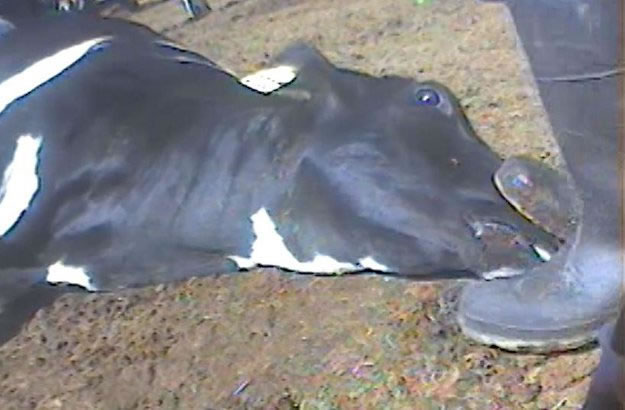
"Animal Care Certified" Eggs Petition
Status: Victory - The Federal Trade Commission (FTC) announced that the United Egg Producers (UEP) deceptive logo would no longer be stamped on egg cartons nationwide
Key Date: September 30, 2005
From 2002 to 2005, the majority of U.S. egg producers labeled their egg cartons with a logo that read “Animal Care Certified.” Despite the image conveyed by such a message, hens who were laying “Animal Care Certified” eggs were still subjected to abuses so terrible, they would lead to prosecution if forced on the dogs or cats with whom we share our homes.
In 2003, Animal Outlook filed legal petitions with federal agencies and the Better Business Bureau, alleging that these producers were engaged in misleading advertising. But this was just the beginning of our campaign.
Over the next two years, we investigated so-called “Animal Care Certified” egg farms, argued our case two times before the Better Business Bureau, lobbied federal agencies, produced damning media exposés, conducted consumer polls and public outreach, and even filed a lawsuit.
Our hard work paid off not only with nationwide media coverage of the abuses endured by so-called “Animal Care Certified” hens, but on September 30, 2005, the Federal Trade Commission (FTC) announced that the United Egg Producers (UEP) deceptive logo would no longer be stamped on egg cartons nationwide, as soon as April 1, 2006.
This landmark victory received widespread media attention, including articles in The New York Times, The Washington Post, The Baltimore Sun, USA Today and the Des Moines Register.
Despite all of these steps, the “Animal Care Certified” is still being used. In February 2008, we documented this misleading logo on egg cartons being sold in stores in New Jersey. Read about the consumer fraud lawsuit we filed in New Jersey in February 2008.
More news about this case:
